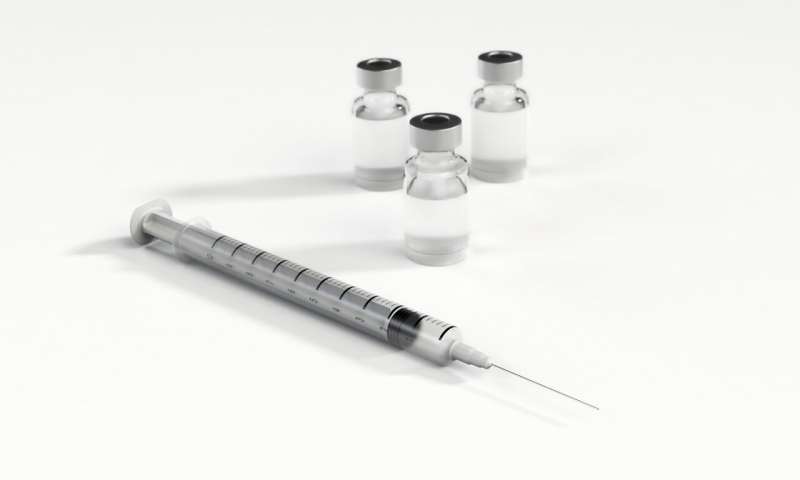This article has been reviewed according to Science X's editorial process and policies. Editors have highlighted the following attributes while ensuring the content's credibility:
fact-checked
peer-reviewed publication
trusted source
proofread
COVID-19 case studies offer insights into what it will take to combat misleading medical information online

A team of medical and public health leaders from the American Board of Internal Medicine, ABIM Foundation, and several respected institutions say COVID-19 case studies, among other examples, can inspire new recommendations aimed at combatting viral medical rumors and false or misleading information online.
According to lead author, Richard J. Baron, MD, ABIM President and CEO, this issue is particularly important considering the recent judicial opinion prohibiting the federal government from influencing social media companies. The analysis and recommendations are published in Annals of Internal Medicine.
U.S. Food and Drug Administration Commissioner Dr. Robert Calif has called medical misinformation "the leading cause of preventable death in America" and Surgeon General Dr. Vivek Murthy has sounded the alarm, as well. At no time was this issue more obvious than during the COVID-19 pandemic.
ThisIsOurShot and VacunateYa, or TIOS-VY, are linked national grassroots organizations that empower and support trusted medical professionals to share accurate health information on social media and combat misinformation with the goal of building healthier communities. The viral vaccine-selfie movement #ThisIsOurShot was one of their signature efforts. TIOS-VY built the organizational infrastructure to support medical professionals as they engaged and convened online communities.
But despite their efforts, nearly 2 years into the pandemic, 78 percent of adults either still believed or were unsure of whether to believe at least 1 of 8 false statements about COVID-19 or COVID-19 vaccines. TIOS-VY encountered several challenges that hampered its effectiveness online. These included limited funding, limited data about their digital audience, and online harassment and attacks aimed at public health communicators.
Considering these challenges, the authors recommend the creation of a sustainably funded, independent public–private partnership to address the challenges faced by TIOS–VY. The authors argue that this structure will allow for sustainable, long-term funding, support for under-resourced stakeholders or members facing online harassment, flexibility in detecting and responding to rumors while protecting vulnerable personal data and could more effectively work with social media platforms to combat misinformation than existing information stakeholders. They believe a fully funded and coordinated response could have a meaningful effect on the nation's health.
More information: Addressing Viral Medical Rumors and False or Misleading Information, Annals of Internal Medicine (2023). DOI: 10.7326/M23-1218




















